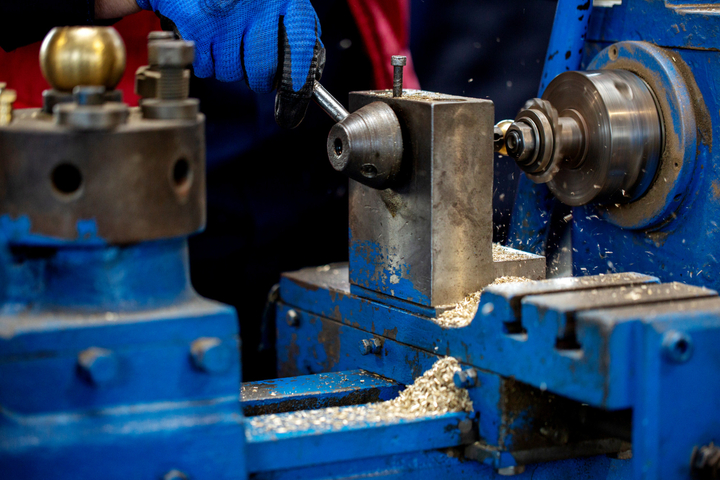The Role of Metal Machines in Environmental Conservation and Renewable Energy
الجسم

Metal machines play a vital role in environmental conservation and the advancement of renewable energy technologies, contributing to the global effort to mitigate climate change and transition towards a sustainable future. From the production of clean energy infrastructure to the recycling of materials, these machines are instrumental in driving forward the green revolution.
Manufacturing Sustainable Energy Infrastructure
Metal machines are essential for manufacturing the infrastructure needed to harness renewable energy sources such as solar, wind, and hydroelectric power. CNC machining centers fabricate precision components for solar panels, wind turbines, and hydroelectric generators, ensuring optimal performance and efficiency. Additionally, metal additive manufacturing technologies enable the production of complex geometries for innovative renewable energy solutions, such as tidal turbines and geothermal systems.
Advancing Energy Storage Technologies
Metal machines play a crucial role in advancing energy storage technologies, which are essential for balancing the intermittent nature of renewable energy sources and improving grid stability. Battery manufacturing facilities rely on metal machining and forming processes to produce electrode materials, casings, and other components. Advanced welding and joining techniques are used to assemble battery packs with high energy density and reliability, enabling the widespread adoption of electric vehicles and stationary energy storage systems.
Recycling and Circular Economy Practices
Metal machines facilitate the recycling and reuse of materials, supporting the transition towards a circular economy and reducing the environmental impact of resource extraction and waste generation. Scrap metal recycling facilities use shredders, balers, and sorting machines to process discarded metal components and industrial scrap into raw materials for manufacturing. Additionally, metal additive manufacturing technologies enable the direct production of components from recycled materials, further promoting sustainability and resource efficiency.
Enhancing Environmental Monitoring and Remediation
Metal machines are employed in environmental monitoring and remediation efforts, helping to identify pollution sources, assess environmental risks, and mitigate ecological damage. Remote sensing technologies mounted on drones and satellites use metal components to monitor air and water quality, detect deforestation, and track changes in land use. Robotic systems equipped with sensors and sampling devices can navigate hazardous environments to collect soil and water samples for analysis, facilitating the remediation of contaminated sites.
Conclusion
In conclusion, metal machines are indispensable tools for environmental conservation and the advancement of renewable energy technologies. These machines enable the manufacturing of sustainable energy infrastructure, the development of energy storage solutions, and the implementation of recycling and circular economy practices. Additionally, metal machines play a crucial role in environmental monitoring and remediation efforts, helping to safeguard ecosystems and mitigate the impacts of climate change. As we continue to transition towards a greener and more sustainable future, metal machines will remain essential allies in our efforts to protect the planet for future generations.







تعليقات